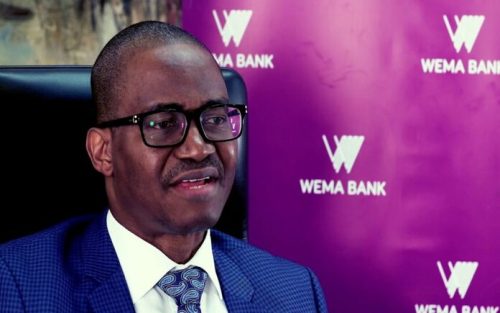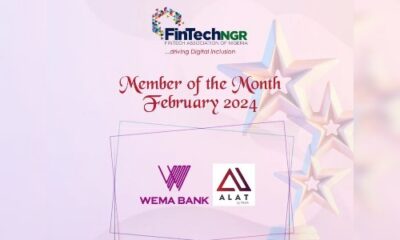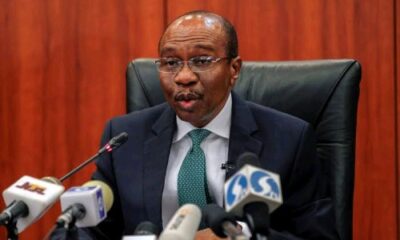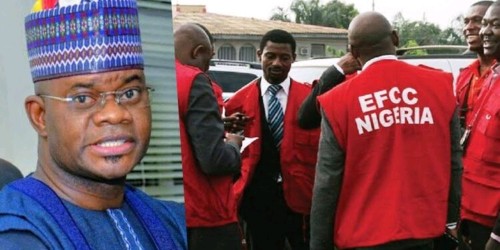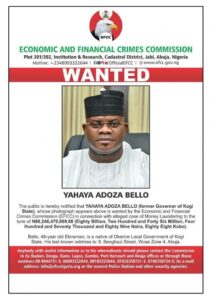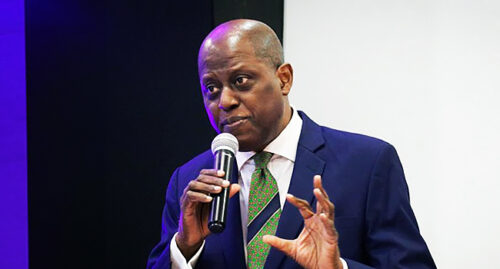Wema Bank Plc, one of Nigeria’s struggling financial institutions is in the news again for the wrong reasons as some customers of the bank have accused the lender of conducting illegal banking practices in the country.
They said they discovered that the bank and its agents had allegedly been opening unauthorized accounts for customers with information or data in the bank’s possession.
The financial institution, led by Ademola Adebise, has allegedly been opening accounts for some Nigerians on its digital banking platform, ALAT, without their knowledge or consent in a bid to celebrate its 5th anniversary.
While the actual number of unauthorized accounts opened on behalf of unsuspecting Nigerians is unknown, Wema Bank was aiming to achieve “a million accounts in one day”.
Wema Bank, in a mail, claimed the unauthorized accounts were opened for certain persons “to celebrate with us” despite not informing them ahead or receiving approval to create the accounts.
This illegal banking practice is similar to that of Wells Fargo, a United State bank, which was accused of opening 1.5 million accounts without authorization, with over 565,000 credit cards applied for, allegedly without customers’ consent.
About 5,300 employees at Wells Fargo were sacked for opening the illegal accounts, and the company was fined $185 million by the Consumer Financial Protection Bureau in the United States.
The unauthorized Wells Fargo accounts were only uncovered by the affected persons when the accounts started accumulating debt from bank charges on the unsuspecting individuals.
Just as the sacked Wells Fargo employees were said to have indulged in fraudulently opening sham accounts to beat target, Wema Bank vendors and marketers may have used the same strategy to achieve the lender’s anniversary target.
That Wema Bank is expected to also place a financial burden on the unsuspecting persons through account maintenance costs, from which the lender generated about N2.10 million last year, surpassing N1.24 million in 2020.
Recently, Mental Health Advocate, Adebayo Tayo, took to his Twitter account to publicly accuse Wema Bank of opening an account in his name without authorization from him.
Tayo lamented that he never knew he had a new Wema Bank account until his mother contacted him because she received an alert that was intended for him – shocking, how come he owns an account he’s unaware of, and his mom receives the alert.
“I am concerned about how my info had been used by Wema Bank and I need detailed explanations about the account including every transaction it has performed before someone uses my details for an account to launder money or collect ransom, he stated.
Following a probe into Tayo’s claim, this newspaper discovered he was not the only one whose identity was used by the financial institution, to open accounts on its digital banking platform, ALAT, without the knowledge or consent of the individuals.
Another affected Nigerian is Oyenike Ojo, whose name was used to open an account. However, when money was sent to the account, the alert details showed another name, Oluseyi Bamgboyi as account owner – which means two different names seem to have been used to open one account.
Ojo’s husband said something was shady about the account, “What I said is, the current name on the account number in my screenshots is not my wife’s name. If you look at that screenshot, the account was opened with my wife’s name and a new account number.
“She also got a credit alert notification via SMS with the new account number. This shows that her details were used to open that account. However, I tried to do a transfer to that account this morning when I read the news only to see that the account name is Oluseyi Bamgboye and not Oyenike Ojo (which is my wife’s name). Something is definitely fishy”, he explained to Ripples Nigeria.
Ojo said his wife has an account with Wema Bank which she hasn’t used for about seven years, and the new account created in her name doesn’t seem to carry the same number as her old account.
He stressed that the unauthorized accounts opened are “definitely an inside job.”, stating, “Customer’s details are compromised and they are being used to open new accounts. Whether by marketers so as to meet targets of the number of accounts opened, or for money laundering, I can’t tell.”
Ojo asked for an investigation into the illegal accounts opened by Wema Bank, saying the situation is questionable, “How Oyenike Ojo’s savings account opened without her permission has now become Oluseyi Bamgboye’s account is definitely questionable.” Ojo said, expressing his worry.
Another name used to open an unauthorized account, Abimbola Fakoyejo, disclosed that he was still wondering about his unused account on ALAT when he saw a message notifying him that an account has been opened in his name.
Wema Bank also did not immediately respond to our inquiry on the matter.
Credit: Ripples Nigeria

 BIG STORY4 days ago
BIG STORY4 days ago
 BIG STORY4 days ago
BIG STORY4 days ago
 BIG STORY2 days ago
BIG STORY2 days ago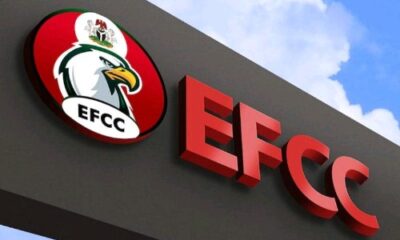
 BIG STORY4 days ago
BIG STORY4 days ago
 BIG STORY2 days ago
BIG STORY2 days ago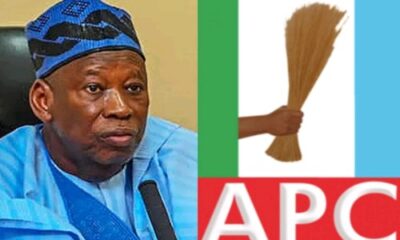
 BIG STORY2 days ago
BIG STORY2 days ago
 BIG STORY2 days ago
BIG STORY2 days ago
 BIG STORY3 days ago
BIG STORY3 days ago



